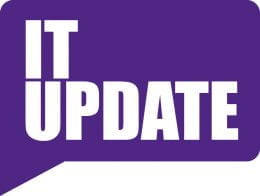Did we mention K-Staters need to be constantly on guard for protecting yourself against phishing scams? Scammers will target you both personally and professionally. Keep your guard up. Recent attacks include phishing scams for the Equifax settlement claim and the Capital One breach.
Equifax settlement claim
Cybercriminals are trying to trick you into filing an Equifax claim and receiving a $125 payment because your personal data was part of the Equifax data breach. Scammers are sending phishing attacks that appear to come from Equifax, however, when the user clicks the link they are on a fake website that mimics Equifax. This website then attempts to steal your personal information.
Don’t fall for it. Forward this fake email to abuse@ksu.edu.
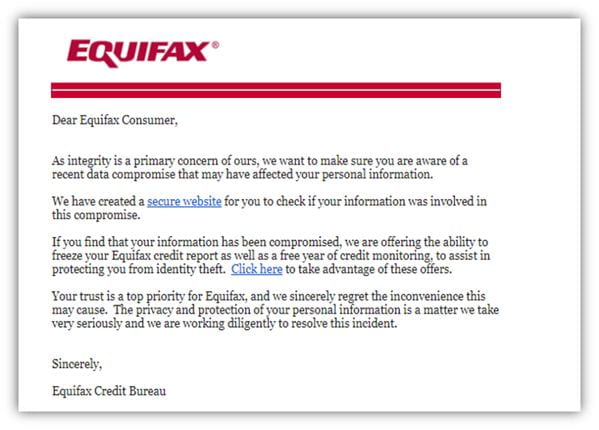
To file a claim, go the legitimate FTC website and click on the blue “File a Claim” button. The website checks your eligibility for that claim.
Note: Not everyone’s information was compromised. The link to the FTC site is: https://www.ftc.gov/enforcement/cases-proceedings/refunds/equifax-data-breach-settlement.
Capital One
Cybercriminals are trying to exploit the Capital One breach with a phishing email that is using a Windows security update as the bait. Clicking the link in the email will install a backdoor Trojan.
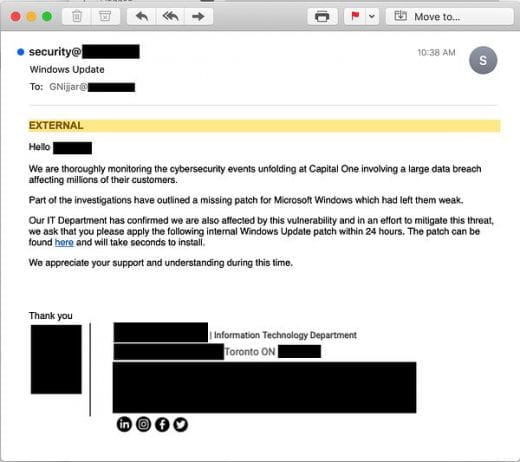
Do not click on links in an email to install the software. Forward emails such as these to abuse@ksu.edu.
Breaches such as Equifax and Capitol One are prime opportunities for cybercriminals to trick K-Staters into giving up their credentials. Remember: Go to the organization’s website for information on recent breaches.
If you have any questions, contact the IT Help Desk (helpdesk@ksu.edu).
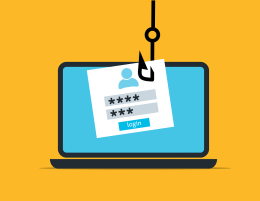 Phishing scams are used by cybercriminals to trick you into sharing personal information, such as passwords, credit cards, social security and bank account numbers, by sending you fraudulent emails or directing you to a fake website. K-State and legitimate businesses will never ask for your account, personal or financial information by email. Learn what a phishing scam looks like.
Phishing scams are used by cybercriminals to trick you into sharing personal information, such as passwords, credit cards, social security and bank account numbers, by sending you fraudulent emails or directing you to a fake website. K-State and legitimate businesses will never ask for your account, personal or financial information by email. Learn what a phishing scam looks like.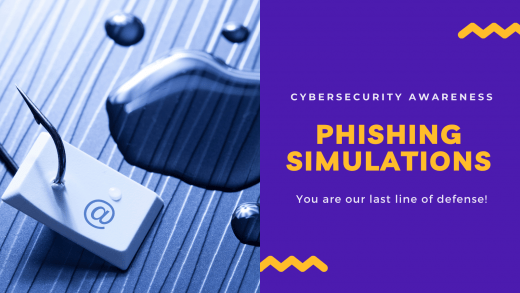
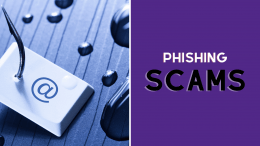 A new phishing scam is currently targeting colleges and universities. The scam email notifies students, faculty, and staff that federal government funds are available and asks the recipient to apply for the grant money and provide their personal data. Do not click the link; this is a scam.
A new phishing scam is currently targeting colleges and universities. The scam email notifies students, faculty, and staff that federal government funds are available and asks the recipient to apply for the grant money and provide their personal data. Do not click the link; this is a scam.
 As employees continue to work remotely, cyber-attacks are on the rise. The latest attack is the
As employees continue to work remotely, cyber-attacks are on the rise. The latest attack is the 